Hypothyroidism
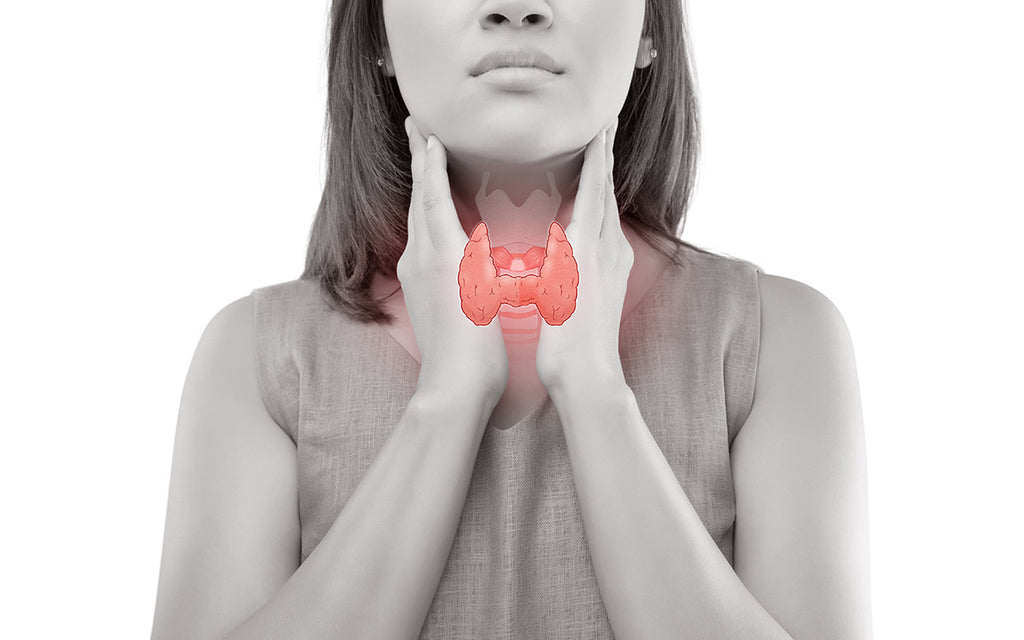
Thyroid Disease & Hypothyroidism
Your thyroid is slowing down… Thyroid disease, hypothyroidism, Hashimoto's, just plain feeling worn out…
Thyroid problems cause a lot of issues in people, especially women. It's normal in our society to have your thyroid slow down in the middle of life, but is it healthy?
Is there something you can do about it?
What natural remedies exist to get you through this and make you feel better?
“I’m tired all the time!”
Marianne was generally an active woman. In college, she started running and continued most days running 1-2 miles. Entering her 40s, Marianne was proud her body stayed a trim size 8, she had muscle definition, and good endurance. She planned on entering the longest marathon she ever ran this coming year.
But then came the summer and Marianne just couldn't get her energy going. Nothing really changed, she was still running, still working out, still running her usual 1 to 2 mile every day, but she just couldn’t get the energy or the drive to do more.
In the end, she skipped the marathon.
Danielle wasn't quite as healthy as Marianne. She tended towards a little fluffy, but still was healthy and relatively fit. She stretched every day and exercised most days. Her job as an engineer meant she spent most days behind a computer. Although she ate healthy, certain treats made their way into her diet.
Danielle blamed the air conditioning kicking on as to why she suddenly got so tired in the afternoons.
Then there's Tracy. Despite multiple warnings from her doctor, Tracy enjoyed watching TV much more than trying to figure out an exercise or diet program. She tended towards eating out and knew she wasn't getting in nearly as many vegetables as she should. She knew she was many pounds overweight and that could cause problems later in life.
But, she just didn't have the energy or the desire to make the change. No matter what her doctor or family said, they just didn't get she wanted to make the change, but just couldn’t (and didn’t even know why).
All three of these women have the same problem…
An underactive thyroid.

Hypothyroid Symptoms
It's the whole body fatigue that gets most women. A lot of women feel cold and gain weight, but it’s that constant, soul-draining weariness that seeps into everything that drives most women to seek out professional help.
Fatigue
Feeling fatigued because of an underactive thyroid feels different than just being tired. There's a sensation of deep-seated, emotional exhaustion.
When your thyroid isn’t producing enough thyroid hormones, it affects your whole hormonal balance system. Your levels of cortisol go up, and serotonin and dopamine go down. This can lead to irritability, depression, and a general sense that nothing is good or nothing matters.
Cold
Most women are cold. Not only are we the hotter of the sexes, both in looks and body temperature, but women are much more susceptible to fluctuations in temperature.
Think about your co-worker that tends to put on a sweater to withstand the icy blast of the air conditioner. Some men in the office may complain “how can you possibly be cold?” But you are.
And that's perfectly normal. In some studies, scientists discovered women like the ambient temperature between 1 and 5 degrees warmer than what their male counterparts prefer. They found that women going through menopause or that have an underactive thyroid feel even colder.
One of the main reasons for that is the type of fat we have in our bodies. The healthy fat, Brown fat, helps generate heat for the body and keeps our internal temperature steady. But, when the body doesn't produce enough thyroid hormone, the brown fat doesn’t generate as much heat, and we feel colder.
Weight Gain
There's a two-fold problem when it comes to hypothyroidism and weight gain. And it causes debate within the medical community over which one of these is true, or if they're both correct.
Women with hyperthyroidism gain between 15 and 30 lb per year on average since their diagnosis.
One reason may be because insufficient thyroid hormones in the body slows down metabolism and encourages the body to store sugar and fat. Our basal metabolic rate decreases.
But, people with low thyroid hormone are tired. This means they don’t get out and exercise much as they should and a lack of exercise encourages weight gain.
Aches and Pains
With the weight gain, more stress is on the muscles and joints. Because of the fatigue, a person cuts back on exercise, and they gained weight. The mix of weight gain, lack of motion, and stress cause aches and pains.
Add in the muscle cramps, uncontrolled spasming, and the breakdown of muscle tissue that can be traced back to improper hormone levels - these cause aches and pains, too.
Hair Loss
As your level of thyroid hormones keep decreasing, many of the hair follicles stop regenerating and your hair appears to be falling out. Fortunately, this isn’t as big a problem for many women as some of the other symptoms. Most women experience their hair getting thinner, but patchy baldness seems to only occur in about 10% of women.
Dry Skin
Of course, dry skin, on the other hand, seems to affect more than 50% of people. Because of the low levels of thyroid hormone in the body, the skin doesn't regenerate as well as it should. Because the skin is not shedding as quick, patches of dry skin, flaking skin, and coarseness tend to build up.
This is especially true in hypothyroidism caused by autoimmune disorders, like Hashimoto’s. In this case, the swelling and redness that goes along with the dry skin is called myxedema. The autoimmune issue needs addressing, along with remedying the low thyroid hormone.
Digestive Upset
Constipation is one of the top problems in society. Regular bowel movements are three times a day to match your eating schedule, but very few people are regular. But when you go less than once per day, it’s a huge problem.
People with hyperthyroidism have it worse. Approximately 20% of people with hypothyroidism report constipation getting worse. Fortunately, natural laxatives are one of the best compensation methods for this problem.
Poor Memory & Depression
The disruption in the thyroid hormones affects other hormones and neurotransmitters such as acetylcholine and serotonin. These hormones are responsible for helping us to think clearly and breaking up the mental fogginess.
Nearly half of all people have experienced some problems concentrating or remembering details as thyroid problems increase. Below we have a couple of remedies that help encourage the brain to form memories better and recall details quicker.
This ties in with feeling depressed. Just like with memory issues, serotonin helps us feel happy. Because depression in thyroid hormones also causes depression in serotonin, we don’t feel as good as often. And to add insult to injury, not being able to exercise, feeling tired, and the little social problems from not being able to remember things well only encourages us to feel discouraged and upset.
When combined, nearly all people experiencing hypothyroidism experience some form of depression or problems concentrating.
Menstrual Irregularities
Most women don't notice a significant change in their periods, whether they become lighter, heavier, or just irregular. Most women seek out aid of a doctor because of memory issues or pain. It's only after diagnosis that many women realize their periods aren’t regular anymore.
Other Issues
Some of the other problems linked to hypothyroidism include brittle nails, goiter, high cholesterol, sexual dysfunction, slow heart rate, and sluggishness.
Causes of Hypothyroidism
Auto-Immune Issues
Many things cause hypothyroidism. The most common cause is an autoimmune disease known as Hashimoto's Thyroiditis. In this case, the immune system recognizes the thyroid as a potential invader and tries to destroy it. As the immune system is successful, the amount of thyroid hormone the body can produce decreases significantly.
Medical intervention & Medicine
For some people, they may have had hyperthyroidism. The treatment for hyperthyroidism causes a severe depression in the production of thyroid hormone, which could be permanent. In other cases, the doctors may have removed the thyroid altogether.
Additionally, people exposed to radiation therapy or excessive x-rays may have a decrease in the production of the thyroid hormone.
Many of the medicines used to treat psychological conditions, depression, heart disease, and cancer have a well-known side effect of causing a drop in the production of thyroid hormones. Many other medications may adjust other hormones in the body, like insulin, which can change the way your thyroid behaves.
Sedentary Life
Of course, sitting for long periods as part of a desk job or watching TV causes problems in the body. Lowering the production of thyroid hormone is one of them.
Poor Diet
Processed foods cause many of the diseases experienced by people. Because of the chemicals found in processed food, GMOs, and residual pesticides, the body is inundated with chemicals that cause all sorts of problems.
Some of these chemicals are known as endocrine disruptors, which means they block the production of hormones in the body and interfere with the hormones. Most notably, many endocrine disruptors are known for causing depression. But some studies show that some pesticides directly impact thyroid production.
Other
Of course, people may not know why it’s happening. Being aware of your body and taking action to make sure the doctors know something is wrong is key to keeping healthy. Even healthy people can experience hypothyroidism.
“After the 2012 Olympics, I returned to training, but unlike in previous years, my off-season weight gain didn't melt off as soon as I got back to my routine. I was tired, and my clothes weren't fitting. I'd been diagnosed with hypothyroidism, which means my thyroid is underactive, and that slows my metabolism.” ~Michelle Carter
How to Treat Hypothyroidism and Thyroid Diseases
Conventional
Medically, your doctor will tell you the only thing you can do is take a medication that either stimulates the production of thyroid hormones or take supplemental thyroid hormones.
These do work, but you have to monitor it regularly and you may not experience long-lasting effects.
Common medications include Levothyroxine (Synthroid, Levoxyl, Levothroid, Unithroid, Tirosint) and Liothyronine (Cytomel, Triostat).
Integrated
Integrated medical therapies are having more success in helping women who have thyroid problems. Many integrative physicians will recommend replacement thyroid hormone supplementation and tend to askew synthetic versions. They prefer bioidentical thyroid supplements like desiccated thyroid (Armour Thyroid, Nature-Throid, Westhroid).
They may recommend alternative therapies like acupuncture, herbal medicine, and massage.
Statistically, using integrative therapy tends to produce the best and longest-lasting results over choosing purely allopathic medicine or solely alternative medicine.
“I want people to know that blood tests alone won't always detect thyroid disease. My blood panels were normal. I think a lot more people have this disease than are diagnosed.” ~Kim Alexis
Alternative
If you are at risk for developing thyroid problems or are in the very first stages, integrating conventional medicine with alternative medicine will give you the best results, but you have to know what the alternatives are and how they work.
Herbal medicine & Supplements
Based on the proper use of herbs and spices to aid the body in healing, many of the herbs support the body to help clear out toxins, integrate more iodine into the diet, and support the overall adrenal system.
Seaweeds, kelps, and other sea vegetables were used by the herbal medicine community for millennia, highly traded to inner areas of the continent. The practitioners knew the inherent value of these foods, and today we suspect that iodine is the reason why.
In addition to the iodine, sea vegetables contain 20-50% of their weight as minerals, including magnesium, potassium, sodium, calcium, zinc, chloride, sulfur, phosphorous, copper, vanadium, cobalt, manganese, selenium, iron, and fluorine. As the body becomes deficient in these minerals, it begins to manifest disease. Eating kelp helps provide some of the missing nutrients to the body.
Rosmarinic acid, particularly from rosemary, has been showing promise in several studies indicating its role in thyroid stimulating hormone uptake. For immune-related hypothyroid issues, it calms excess T cell activity and pro inflammatory cytokine release.
Ashwagandha helps naturally stimulate thyroid activity and helps prevent hepatic (liver) damage because of low thyroid hormones. Additionally, ashwagandha helps reduce cortisol in the body, reducing stress that can play a part in the overstimulation of the thyroid.
The guggul plant, Commiphora mukul, is gaining popularity, especially for help people restore immunity and natural function. According to Dr. Richard B. Kreider, gugguisterones may increase the function of the thyroid and stimulate the conversion of the T4 into the more active T3 form (Exercise & Sport Nutrition: Principles, Promises, Science, & Recommendations; Richard B. Kreider ,et al.; 2009 ).
Using the right types of supplements supports the whole body, and in particular the thyroid. Selenium is present in the endocrine organs in higher concentrations than in other organs of the body. Being deficient places stress on the thyroid and its ability to utilize iodine. It works particularly well with vitamin D in helping the body prevent oxidative stress.
Many women are deficient in Vitamin A, D, and E, which can show up in repressed thyroid function. In particular, the carotenoids (Vitamin A) are partially responsible for helping the body sense and utilize the thyroid hormones. Both vitamins D and E are powerful antioxidants that help preserve the body’s natural function and help the other vitamins function normally.
Acupuncture
Many acupuncturists integrate herbal medicine, and the needles are the next step. A good acupuncture practitioner will help the body redirect the flow of energy so the thyroid can function more normally. Several studies indicate that acupuncture can help relieve the symptoms of an underactive thyroid and increase the amount of thyroid hormone in the body without supplementation.
Biofeedback
Stress is one of the biggest culprits of causing hypothyroidism outside of Hashimoto’s. Training the body to let go of stress and function in a calm matter reduces the pressure placed on the thyroid and allows the hormones to be used efficiently.
Massage
Massage is a great stress reliever, as well. Additionally, massage can help clear out the lymphatic system which can remove toxins from the body. As we remove the toxins, all of the adrenal organs can function better. When used regularly, massage can help lower blood pressure, stressed feelings, and encourage people to exercise more and eat better.
Nutritional and dietary advice
What we eat has a massive impact on the way your body behaves. Some foods are known to depress the production of hormones in our body while others help encourage it.
For any woman with hormonal issues or thyroid problems, soy should be avoided. Unfermented soy contains goitrogens that directly attacks the thyroid and are known to cause hypothyroidism. This includes tofu, soy milk, soy “meats,” soy “cheese,” and soy isolates in processed foods.
Other foods can help people feel better. 100% whole grains help provide fiber that encourages proper digestion. Foods high in vitamin A, such as carrots, sweet potatoes, and squash, help boost the body's production of thyroid hormones. Green vegetables contain magnesium that helps the body utilize thyroid hormones. Sea vegetables and seaweed contain easy to use iodine for the thyroid to use.
Finally, cutting out processed foods help eliminate a lot of pesticides, toxins, and chemicals that can cause damage to your thyroid.

Conclusion
Hyperthyroidism is challenging to live with, but manageable. Using integrated therapies that include the proper medication and liberal use of alternative medicines can give you the best of both worlds and let you live a full life.
Keep watch of your body. The more you know about how you usually behave and what you typically feel can help you understand the changes you're going through.
The first and easiest steps for anyone who thinks they may have issues with hypothyroidism should be to visit a doctor and do what you can to get more exercise and change your diet to include more fruits and vegetables.
Keywords: thyroid, hypothyroid
Metatag: Hypothyroid can be managed with alternative medicine, medication, and the right supplements. Keeping your thyroid working means you can do more and be more active.
- Joshua Lovern

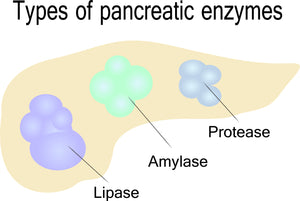

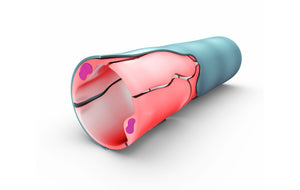
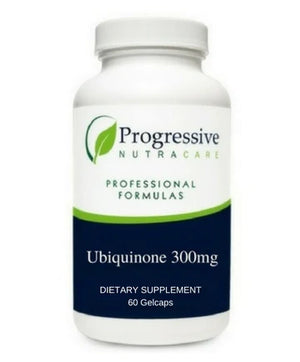

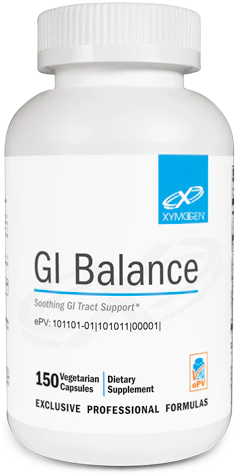
Comments 1
Melissa Christensen
You will find soon I believe that armour no longer is a viable option. Hundreds of people are reporting it has changed. Not sure if the pharm company has done something different but the labs are coming back bad and people are reporting symptoms returning.